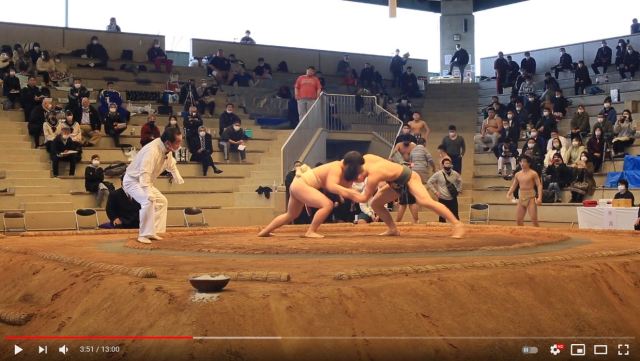
Those three words sound like a good time to me, but I guess I’m the weird one…
Japan has many traditional arts, ceremonies, and sports, and as in many other countries, these traditions often struggle to preserve their authenticity while remaining commercially viable. Sumo, however, has managed to maintain a relatively high level of interest both in Japan and abroad.
But sumo is not without its share of problems either, and the newest one to emerge is a serious threat of no future wrestlers to come up the ranks.
Like many sports, sumo wrestlers often start out on high school teams, but year on year these teams have been evaporating. According to data from the All Japan High School Athletic Federation (Kotairen), the number of high school sumo clubs has been steadily dropping from 213 in 2003 to 146 as of last year.
As a result, seven of Japan’s 47 prefectures only have one high school sumo team, giving them an automatic entry to the national championship tournament. At least it would have, had the tournament not been canceled last year due to the pandemic.
▼ The tournament hasn’t been held since 2019.
In fact, COVID-19 helped to drive down the high school sumo wrestler population even faster, with many senior students hanging up their mawashi loincloth early since there’s no tournament waiting for them at the end.
This is all bad enough, but it’s also happening against the backdrop of an overall growing disinterest in sumo among young Japanese people. This is an issue that the sumo division of Kotairen has been actively looking into over the years.
According to their research, students describe sumo as “painful-looking” and “scary,” and are hesitant to participate while wearing the highly revealing mawashi. And with organized sport options wider than ever including relatively new additions of soccer and basketball, sumo is struggling to remain attractive.
Netizens also had some ideas about why sumo isn’t resonating with kids today
“It’s because there’s no sumo wrestler that makes kids go ‘cool’ and ‘I want to be like him!'”
“Why do wrestlers have to wear those loincloths anyway? Isn’t it possible to wrestle in other clothes?”
“Swimmers are also half-naked but they aren’t complaining.”
“I think sumo is painful and scary too, but I also think baseball, soccer, and basketball are painful and scary.”
“I think the problem is that most retired sumo wrestlers just go on to open restaurants in the end.”
“I get it. I even hate going into a pool shirtless. Why can’t men get bra tops too?”
“Someone needs to make a hit manga or anime about sumo. That will get things moving again.”
“It seems like there’s a lot of bullying going on in sumo.”
“It’s just not interesting.”
Whatever the factors may be, sitting still and letting a problem run over them just isn’t the sumo way, so groups on all levels are working hard to try and entice the youth to give pushing each other around a try. One way is by setting up weight classes for under 100 kilograms (220 pounds) and under 60 kilograms (132 pounds). Previously, there were no weight divisions, meaning a tiny wrestler may have had to go toe to toe with someone over twice their size, hence the “painful” and “scary” image that sport often has.
▼ A high school match at an 80-kilogram (176 pound) limit seems to make for longer and more competitive matches
Also, during the lull in matches due to COVID-19, high school sumo wrestlers have taken the opportunity to reach out to junior high and elementary schools to turn kids on to the benefits of sumo at an early age. “If you practice more, then you can beat opponents bigger than you,” explains Masaaki Yamaoka, the captain of Okayama Prefecture’s only high school sumo team, “Even beginners can become stronger quickly.”
If anyone knows how to stand their ground and fight to the bitter end, its sumo. That being said, I think to survive, and maybe even thrive, sumo really ought to look into developing women wrestlers more. I said it back in 2014, but it bears repeating that women’s sumo kicks ass.
▼ The first International Women’s Sumo Tournament in 2013
There’re no weight classes in women’s sumo, but that doesn’t seem to phase the smaller wrestlers one bit, and they tend to come out on top about half the time against much larger opponents through highly entertaining moves and strategies. Sure, it breaks with tradition to some regard, but it breaks in a good way.
Source: The Sankei News, Hachima Kiko
Top image: YouTube/sumo archives
● Want to hear about SoraNews24’s latest articles as soon as they’re published? Follow us on Facebook and Twitter!

No hay comentarios:
Publicar un comentario